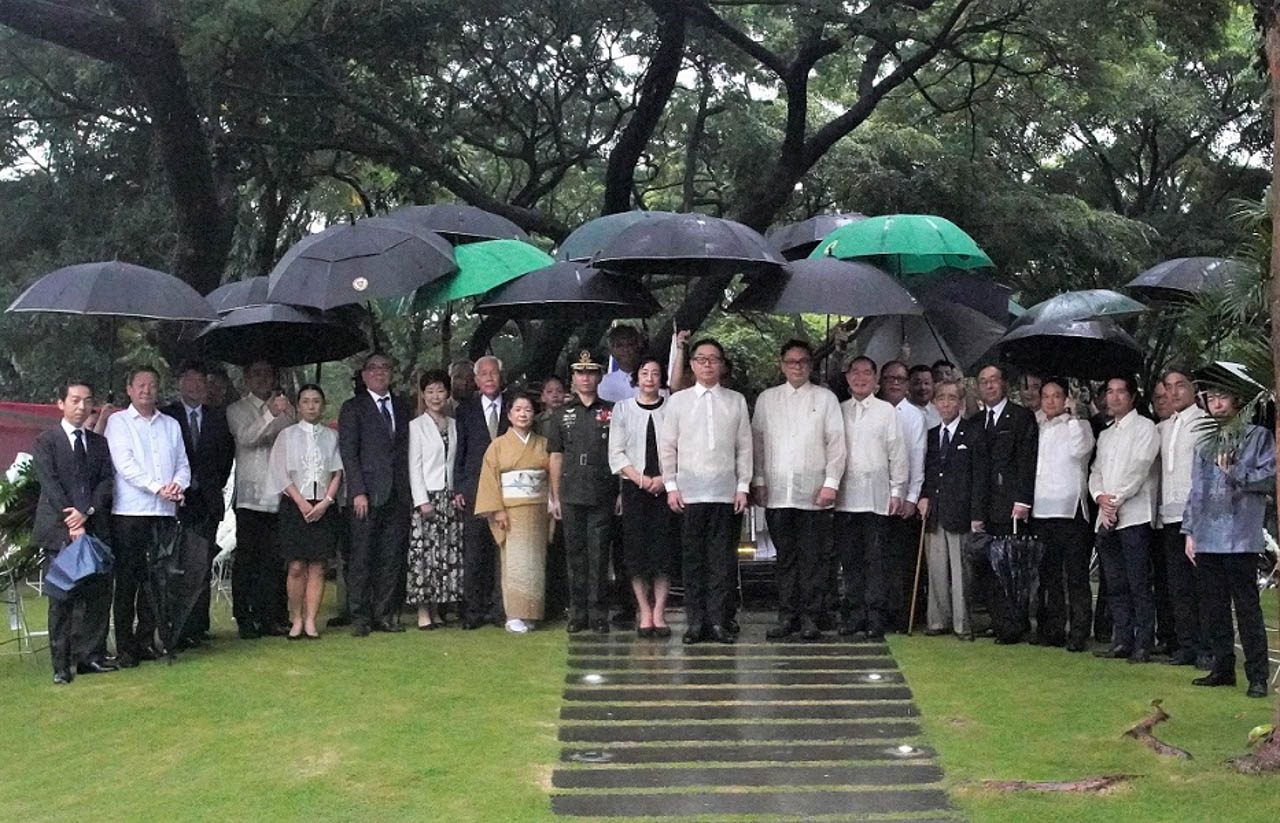SUMMARY
This is AI generated summarization, which may have errors. For context, always refer to the full article.

MANILA, Philippines – When Kano Kayoko was asked to imagine a 2023 with her father, Kano Kanrai, still alive, she almost immediately imagined him offering an apology: over the time lost between himself and his family, because he was busy campaign for peace.
But Ms. Kano, who now heads the Kano Art Promotion Foundation, displays no bitterness or hurt over the time and effort her father put into helping mend ties between the Philippines and Japan, in the aftermath of Japan’s short but bloody occupation of the Southeast Asian nation.
“He’d say it’s very good… [and that it’s] a good job by the younger generation,” Kano told reporters on a rainy Thursday morning on July 13, as Tokyo and Manila celebrated the 70th anniversary of the late Elpidio Quirino’s pardon of over 100 Japanese prisoners of war.
Her father’s campaign and passion is a mission Ms. Kano now spearheads herself. In both Japan and the Philippines, it’s her mission to teach young students about Quirino’s pardon, a controversial decision then, which eventually paved the way for relations between the two countries to normalize.
Mr. Kano, a painter by profession, started writing petition letters to Quirino because a friend of his faced death before a military tribunal in Manila. The appeal eventually grew into a bigger campaign – for amnesty, in the hopes of establishing peace between Manila and Tokyo. In total, Mr. Kano sent the late Quirino 43 letters.
In Japan, Ms. Kano now works with local officials to make sure the pardon is included in their history books. While she’s in the Philippines, she headed to the Manila Japanese School for a lecture on the very same topic. It’s important for her, not because her father campaign for the pardon, but because of its lessons.
Seventy years later, Ms. Kano said this isn’t just about lessons: it means homework. “[What’s important is] not only the remembrance but also [a] reminder of what we should do now for our future.”
“We should not allow historical events as purely events, historical events are our homework for us to make our next actions,” she added.

Quirino’s legacy
The pardon wasn’t easy for Quirino to give, either. After all, his family was victim to violence at the hands of the Japanese.
During World War II, Japanese forces occupied the Philippines for three years. During those years, Imperial Japan unleashed ruthless violence towards a colonized Philippines. “I should be the last one to pardon them as the Japanese killed my wife and three children and five other members of the family. I am doing this because I do not want my children and my people to inherit from me hate for people who might yet be our friends for the permanent interest of the country. After all, destiny has made us neighbors,” the late president would later say on a hospital bed in Baltimore.
Quirino initially refused the idea of pardoning the Japanese but eventually changed his mind, thanks in part to the campaigning of both Mr. Kano and a priest who had immersed with prisoners in the New Bilibid Prison.
Relations between Manila and Tokyo are certainly different, 70 years later. The East Asian country is among the Philippines’ key crucial allies, especially amid geopolitical tensions in the Asia-Pacific. In particular, Japan has evolved into a key partner in asserting the Philippines’ rights in the West Philippine Sea.
Japanese Ambassador Koshikawa Kazuhiko, praised Quirino for his “eye to the future,” describing the two countries as standing “shoulder-to-shoulder as like-minded friends [and] strategic partners.” – Rappler.com
Add a comment
How does this make you feel?
There are no comments yet. Add your comment to start the conversation.